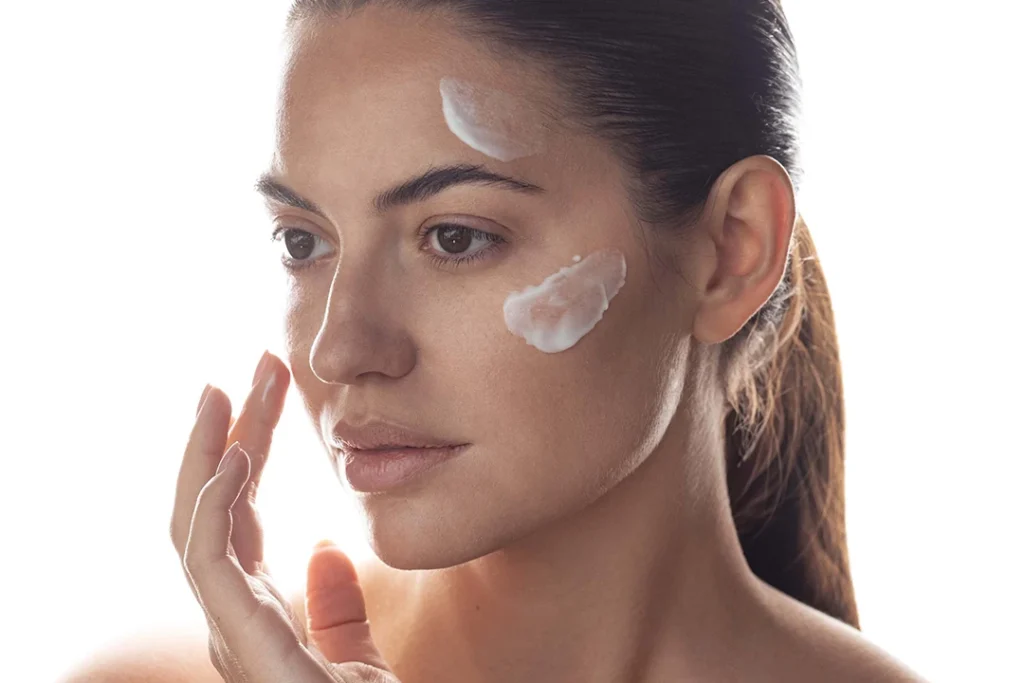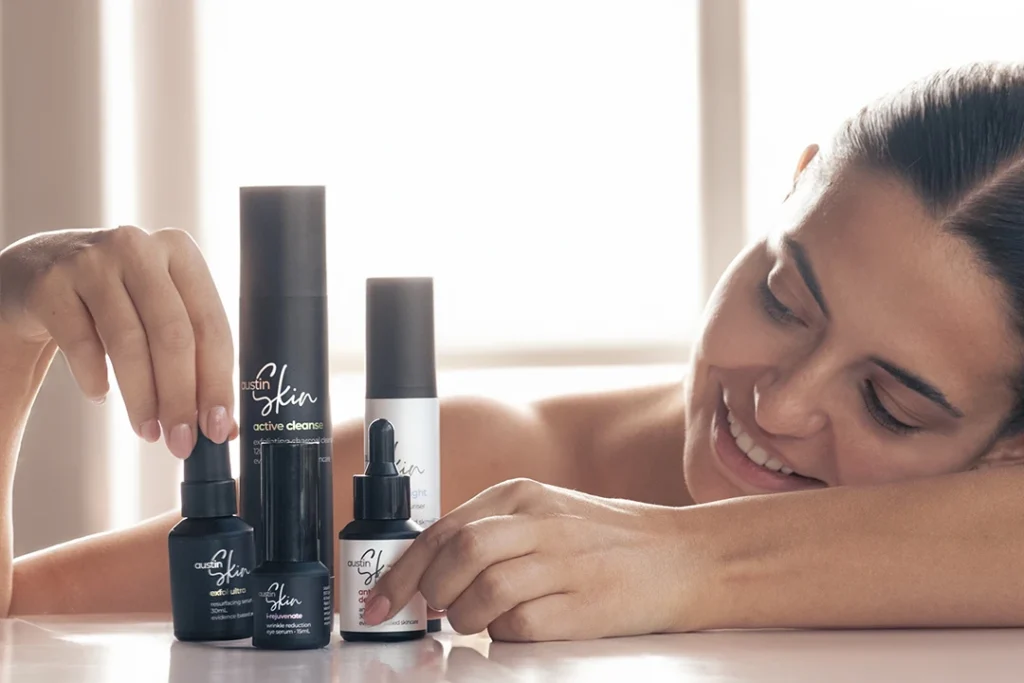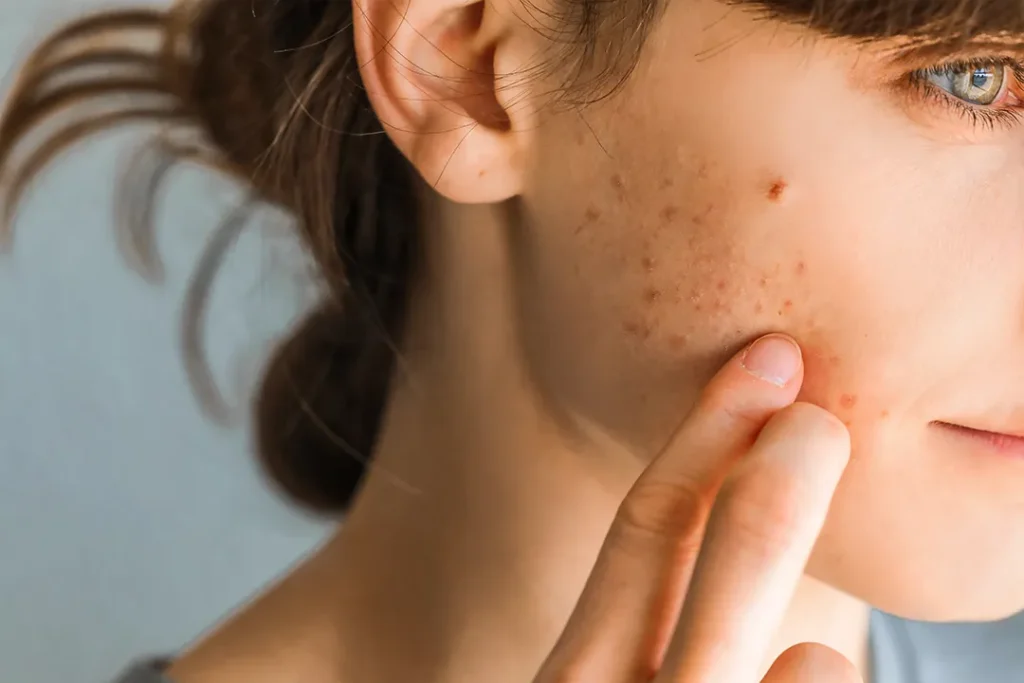The Skin as a Diagnostic Tool
The skin therapists at Austin Clinic are skilled detectives when it comes to linking skin issues to health issues. “We rely heavily on visual cues displayed on the skin to diagnose a variety of internal conditions,” explains Dr Austin. Here are just some of the health issues that skin problems can point to:
Hormonal Imbalances: Fluctuations in estrogen, testosterone, and cortisol levels, can trigger acne breakouts, particularly in teenagers and women during menstruation or pregnancy.
Digestive Issues: Chronic constipation, irritable bowel syndrome (IBS), and food sensitivities, can contribute to skin problems like eczema, rosacea, and even acne breakouts.
Nutrient Deficiencies: A lack of essential vitamins and minerals like vitamin A, B vitamins, zinc, and essential fatty acids, can lead to dryness, dermatitis, and slow wound healing, which can worsen acne scars.
Stress: The body’s response to stress can trigger the release of hormones. These hormones stimulate oil production, which in turn can lead to acne breakouts. Stress also has the power to weaken the immune system, making it harder for the skin to heal properly.
Dehydration: When the body is dehydrated, the skin loses its plumpness and elasticity, appearing dull and more susceptible to irritation and wrinkles.
Understanding Acne Scars
Acne scars are formed when the inflammatory response triggered by acne damages the deeper layers of the skin. The body’s healing process then leads to the production of scar tissue, resulting in visible marks even after the acne itself has cleared.
There are two main types of acne scars:
Atrophic Scars: These are indented scars that appear as pits or icepick marks on the skin. They occur when there’s a loss of collagen during the healing process.
Hypertrophic Scars: These are raised, thickened scars that form due to an overproduction of collagen at the acne site.
The degree and type of acne scarring that occurs can be the result of a wide range of factors, including:
- Severity of the initial acne
- Unique skin type
- Individual genetic predisposition
Acne Scars: How We Can Help
While eliminating acne scars completely is not entirely possible, there is a range of treatment options available to improve their appearance. Here are some commonly used methods that have helped Austin Clinic patients minimise scarring:
Topical Treatments: Prescription retinoid creams including Aspect Dr Exfol A Plus stimulate cell turnover and collagen production, helping to reduce the appearance of shallow scars. Alpha hydroxy acids (AHAs) and beta hydroxy acids (BHAs) can also help to exfoliate dead skin cells and promote smoother skin texture.
Microneedling: This non-invasive treatment involves using a device with tiny needles to create microscopic injuries in the skin. This triggers the body’s natural healing response, which includes collagen production – potentially improving the appearance of scars.
Laser Treatments: Different types of lasers can be used to target and refine scar tissue. Fractional laser treatments create controlled injuries in the skin, promoting collagen production and improving scar texture.
Chemical Peels: Chemical peels work by removing the outer layers of the skin, allowing for smoother regeneration. Depending on the strength of the peel, they can be helpful for reducing the appearance of shallow scars.
Surgery: In some cases, surgical procedures such as punch excision and scar revision surgery may be recommended for deeper, more prominent scars.
The Road to Better Skin
“While the treatments above can significantly improve acne scars, a holistic approach that addresses underlying health issues can be highly beneficial,” says Dr Austin. Here are some lifestyle changes that can promote overall skin health and potentially aid in scar improvement:
Maintain a Healthy Diet: Eating a balanced diet rich in fruits, vegetables, whole grains, and lean protein, provides the body with the essential nutrients it needs for healthy skin function and wound healing.
Stay Hydrated: Drinking plenty of water helps to keep the skin plump and hydrated, which can improve its overall appearance and potentially aid in scar healing.
Manage Stress: Chronic stress can exacerbate skin problems. Practices like yoga, meditation, and regular exercise, can help to manage stress levels and improve overall well-being.
Get Enough Sleep: Aim for 7-8 hours of sleep each night. During sleep, the skin repairs.
Is Your Skin Holding You Back?
When you’re dissatisfied with your appearance, it can take the joy out of everyday life … at home, at the office, and everywhere in between. We invite you to let us help you achieve a new personal best in skincare. Contact us today.




